AI is saving marketing managers and their "big promos"
- Kelly Ballesteros

- Sep 22, 2025
- 3 min read
I've seen firsthand how artificial intelligence has transformed areas like customer service, freeing teams from repetitive tasks and allowing them to focus on what really matters. However, there's one key player that's often forgotten in this revolution: marketing teams.
The challenges of “big promos”
When it comes to big promotions, marketing directors and their teams face a daunting task. It's a common issue in the industry, but few have fully explored the opportunities AI offers to solve it. Managing large-scale campaigns involves coordinating internal product, legal, finance, and logistics teams, as well as countless external agencies and collaborators. The result is a manual, error-prone, and, above all, incredibly stressful process.
Once the promotion is launched, the work continues with countless hours spent following up, supporting users, and endless audits to determine winners and troubleshoot issues arising from natural customer interactions. In the end, every brand manager or coordinator knows that the arrival of a promotion means weeks of stress and little rest.
These challenges are not new, but today's technology, specifically AI, allows us to approach them in a completely different way.
At my company, we've delved deeper into this challenge and are implementing solutions that not only address pain points but also transform the way promotions are executed.
AI as a catalyst for efficiency
The key isn't to replace experts, but rather to empower them, freeing them from the operational burden so they can focus on strategy, creativity, and brand building. The key is to understand the purpose and the how.
My team and I have identified four key areas where AI is having a massive impact:
Intelligent planning and coordination
AI can centralize and optimize promotional planning. It can analyze historical data to predict product demand, identify the most effective communication channels, and dynamically allocate budgets to maximize ROI. An AI assistant can, for example, automate the creation of task calendars and notify each team (legal, logistics, agencies) about their specific deadlines. This significantly reduces the friction and bottlenecks that arise from manual coordination.
For example, if a consumer beverage brand is a consumer product, it could use an AI system to predict the impact of its promotions in different regions. The assistant would analyze sales data, weather, local events, and social media trends, allowing the brand to adjust its distribution and marketing strategies in real time to optimize product availability and conversions.
2. Automation of customer follow-up and service
One of the biggest burdens during a promotion is tracking and interacting with users. AI assistants can efficiently and scalably handle thousands of queries. They can answer frequently asked questions about the promotion's rules, help users participate, and troubleshoot common issues. This frees up customer service teams to focus on more complex and specific problems.
For example, a snack brand can implement a chatbot on its website and social media for a seasonal promotion. The assistant would instantly answer questions about participation codes, prizes, and deadlines. This not only improves the user experience but also reduces the customer service team's workload by more than 70% during the campaign period.
3. Audit and management of winners
Audits to determine winners and verify the validity of entries are a manual and exhausting process. AI can completely automate this process. A system can scan and validate thousands of entries in minutes, identify fraud attempts, and generate winner lists in a transparent and auditable manner. This eliminates human error and speeds up promotion resolution, which in turn improves brand perception.
As the promotion unfolds, an AI can automatically process user data, uploaded images, and alphanumeric codes, filtering out fraud and generating a validated winners list in a matter of minutes. This previously took an entire team days, with extremely high risks of human error.
Post-promotion analysis and learning
Once the promotion is over, AI can analyze the campaign's performance in depth. It can correlate sales data, social media interactions, user behavior, and feedback to generate a detailed report. This analysis not only measures success but also identifies patterns and opportunities for improvement for future campaigns, creating a continuous learning cycle.

It is possible to generate efficiencies in Marketing
What was once a mountain of manual tasks is now a seamless and automated process. Promotional months are easier, and marketing managers are sleeping better.
The opportunity is clear: stop viewing AI as a futuristic tool and start implementing it as a pragmatic solution to current problems. The future of marketing isn't about doing the same thing, but about empowering your teams with the right technology so they can reach their full potential.
AI is no longer an option, and marketing leaders who embrace it will define success in the next decade.
Is your team ready for change?




















